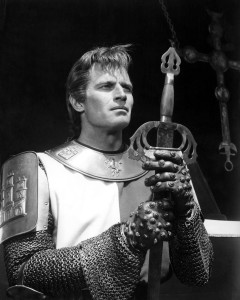Had a French teacher back in the day. You know. A real teacher. Navy vet. Holder of six radar patents. He heard about the reading list for the French AP exam and clapped Camus’s The Stranger on his desk. “Gentlemen,” he said. He always called us gentlemen. “I’ve been told you’re supposed to read this book if you want to do well on the AP exam. Here it is. If you want to read garbage, I offer it to you freely. But you will not read it in my classroom.” He was six feet tall, white haired, taught us in odd moments about the meaning of modern art and anything else that took his fancy, and we all feared and idolized him.
So. We hewed to the classics. No women writers, for example. (I did a search for “not very good women writers, French, and came up with this list.) One thing Mr. Miller taught us you might not know. The great moments in drama — you know, plays — are few and far between. Most critics say these moments have happened four times. Mr. Miller said only three.
The Greeks. Aeschylus, Euripedes, and Sophocles. Skip ahead a millennium and you get to the English. Shakespeare, and on his best day, Marlowe. Then came, belatedly as usual, the French. Racine and Corneille. Who really honestly actually were almost as good as Shakespeare.
Racine did Phaedra. Corneille did El Cid. Who back in the day would have looked like this.


And nowadays would look like this. (See below.)
Regardless. Racine and Corneille were both great. Not that millennials would know. Uneducated tools. Shakespeare? Who?
Why I recorded the soliloquy of Phaedra from Racine’s play. I should rerecord it, because I forgot that women’s soliloquies are always at high volume and not controlled. But I’m tired at the moment, and I’m asking you to imagine that some Phaedra could internalize her insanity. To some degree. Perhaps not. But I’ll rerecord it tomorrow. Okay? Here’s the poor English version:
PHAEDRA: Ah! cruel Prince, too well
You understood me. I have said enough
To save you from mistake. I love. But think not
That at the moment when I love you most
I do not feel my guilt; no weak compliance
Has fed the poison that infects my brain.
The ill-starr’d object of celestial vengeance,
I am not so detestable to you
As to myself. The gods will bear me witness,
Who have within my veins kindled this fire,
The gods, who take a barbarous delight
In leading a poor mortal’s heart astray.
Do you yourself recall to mind the past:
‘Twas not enough for me to fly, I chased you
Out of the country, wishing to appear
Inhuman, odious; to resist you better,
I sought to make you hate me. All in vain!
Hating me more I loved you none the less:
New charms were lent to you by your misfortunes.
I have been drown’d in tears, and scorch’d by fire;
Your own eyes might convince you of the truth,
If for one moment you could look at me.
What is ‘t I say? Think you this vile confession
That I have made is what I meant to utter?
Not daring to betray a son for whom
I trembled, ’twas to beg you not to hate him
I came. Weak purpose of a heart too full
Of love for you to speak of aught besides!
Take your revenge, punish my odious passion;
Prove yourself worthy of your valiant sire,
And rid the world of an offensive monster!
Does Theseus’ widow dare to love his son?
The frightful monster! Let her not escape you!
Here is my heart. This is the place to strike.
Already prompt to expiate its guilt,
I feel it leap impatiently to meet
Your arm. Strike home. Or, if it would disgrace you
To steep your hand in such polluted blood,
If that were punishment too mild to slake
Your hatred, lend me then your sword, if not
Your arm.
Oh. The fourth age of drama? Moron critics think Arthur Miller and Eugene O’Neill and Tennessee Williams made that happen. Did I use the word morons already? Then I’m out of useful adjectives.


